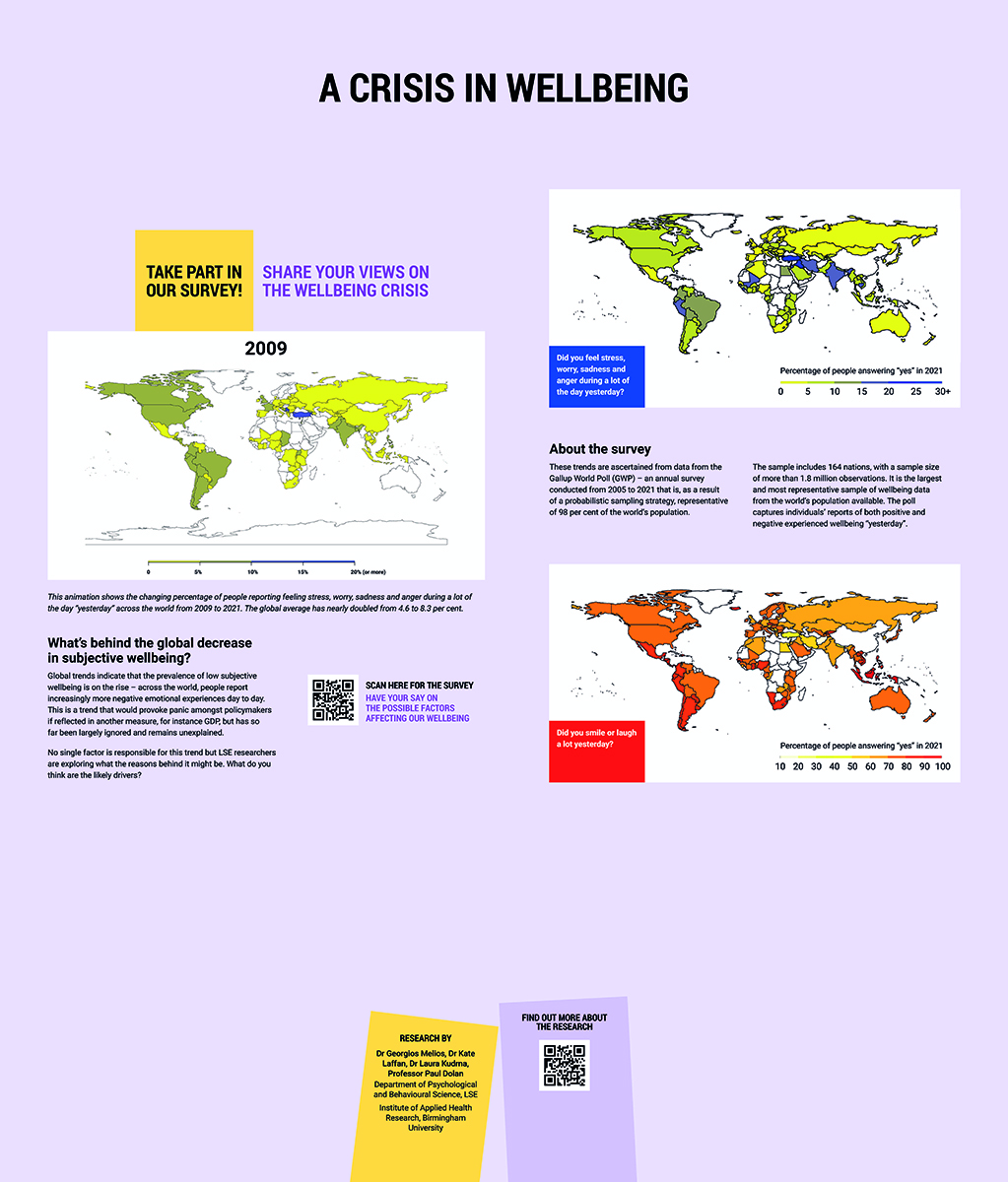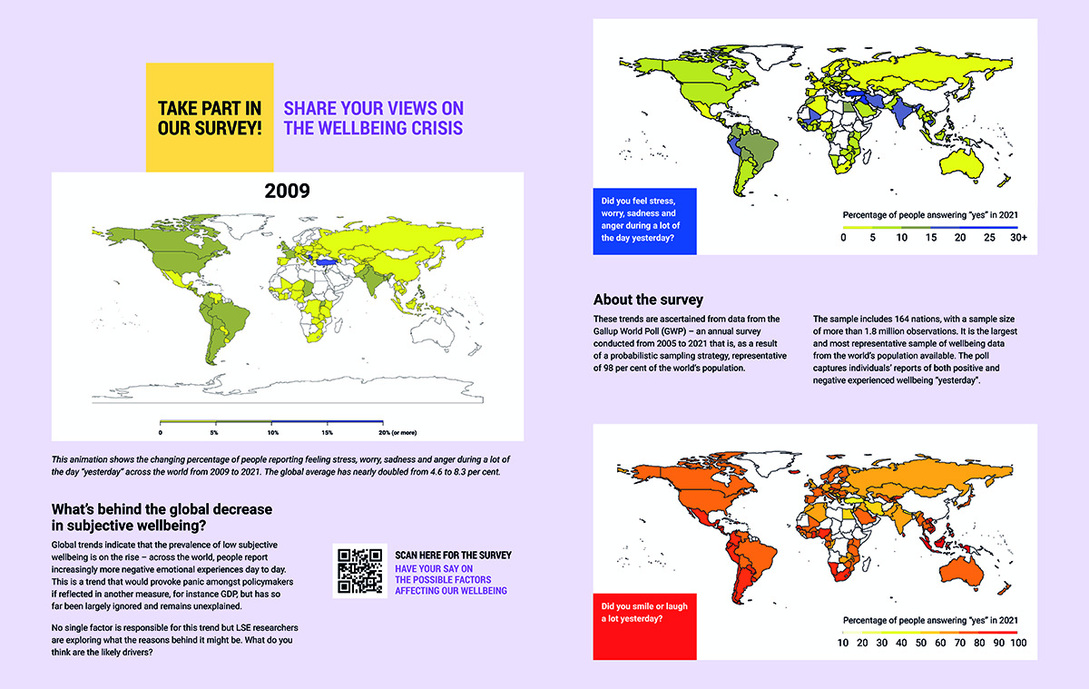Items list
At the 2023 LSE Festival, researcher George Melios presented his latest study on the patterns of low subjective wellbeing (SWB) across the globe. Using data from the Gallup World Poll, the research provides insights into the factors that influence low SWB in various regions.
Global trends indicate that the prevalence of low subjective well-being is on the rise – across the world, people report increasingly more negative emotional experiences day to day. This is a trend that would provoke panic amongst policymakers if reflected in another measure, for instance GDP, but has so far been largely ignored and remains unexplained. No single factor is responsible for this trend but LSE researchers are exploring what the reasons behind it might be.
These trends are ascertained from data from the Gallup World Poll (GWP) - an annual survey conducted from 2005 to 2021 that is, as a result of a probabilistic sampling strategy, representative of 98 per cent of the world’s population. The sample includes 164 nations, with a sample size of more than 1.8 million observations. It is the largest and most representative sample of well-being data from the world’s population available. The poll captures individuals’ reports of both positive and negative experienced well-being “yesterday”.
Key findings from the study include:
Global Patterns: The research points to an increasing trend in low subjective wellbeing worldwide, with variations in impact and trajectory across different regions.
Individual vs. Country-level Factors: The study examines the influence of both individual and country-level factors on low SWB. The findings suggest that while individual factors play a significant role, country-level factors are notably more influential in explaining variations in certain types of low wellbeing.
The research offers a detailed look into the complexities of wellbeing and the various elements that contribute to low SWB, shedding light on the interplay between individual and country-level factors.
Research by George Melios, Paul Dolan, Laura Kudrna, Kate Laffan is published through the Frontiers in Psychology. (edited)


